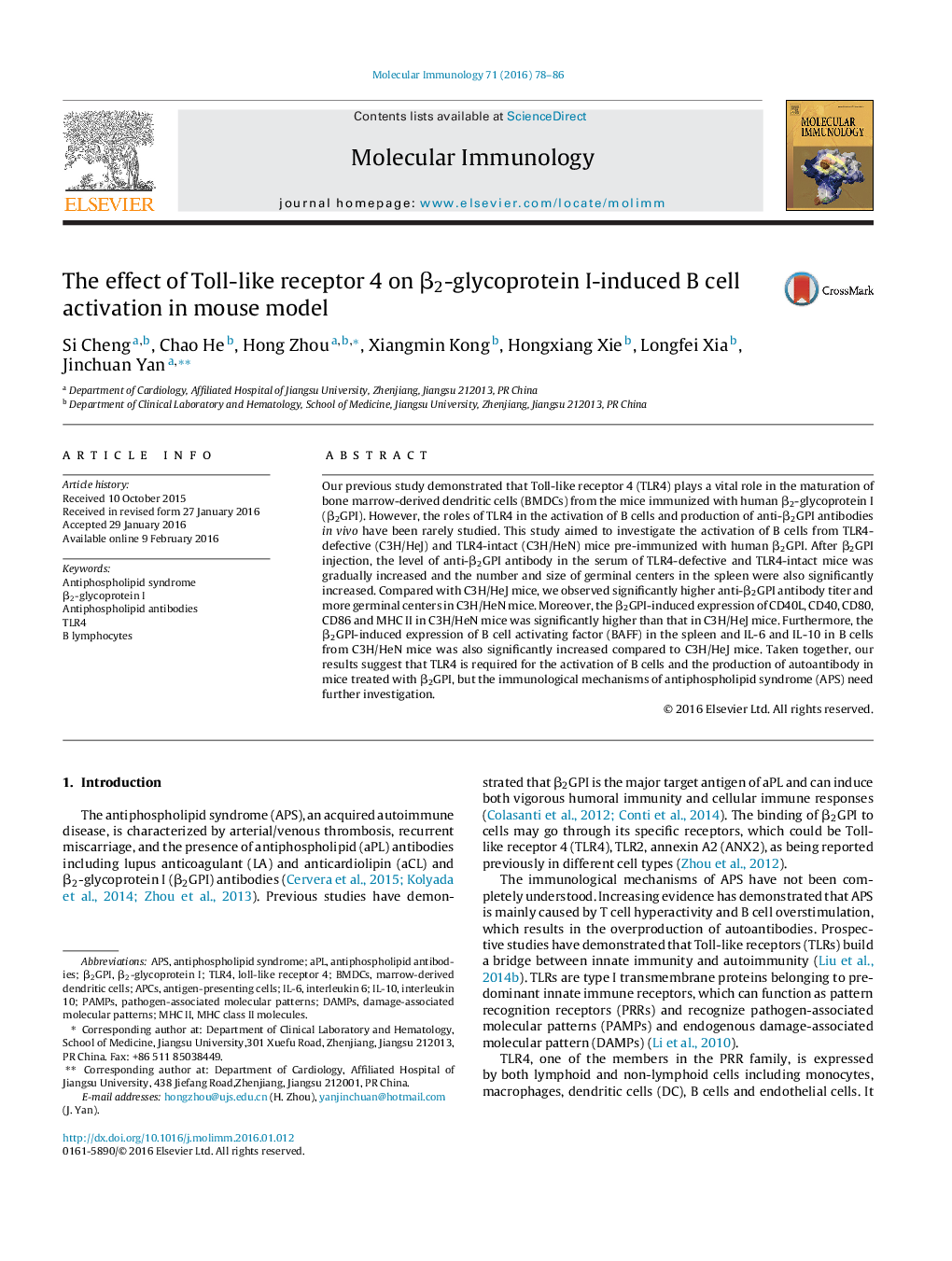| Article ID | Journal | Published Year | Pages | File Type |
|---|---|---|---|---|
| 2830546 | Molecular Immunology | 2016 | 9 Pages |
•TLR4 is required for the activation of B cells and the production of anti-β2GPI antibody in mice treated with β2GPI.•TLR4-related events are involved in β2GPI-mediated pathogenic effects in antiphospholipid syndrome (APS).•Compared with other antigens, β2GPI is more closely involved in APS, which cause the activation of B cells.
Our previous study demonstrated that Toll-like receptor 4 (TLR4) plays a vital role in the maturation of bone marrow-derived dendritic cells (BMDCs) from the mice immunized with human β2-glycoprotein I (β2GPI). However, the roles of TLR4 in the activation of B cells and production of anti-β2GPI antibodies in vivo have been rarely studied. This study aimed to investigate the activation of B cells from TLR4-defective (C3H/HeJ) and TLR4-intact (C3H/HeN) mice pre-immunized with human β2GPI. After β2GPI injection, the level of anti-β2GPI antibody in the serum of TLR4-defective and TLR4-intact mice was gradually increased and the number and size of germinal centers in the spleen were also significantly increased. Compared with C3H/HeJ mice, we observed significantly higher anti-β2GPI antibody titer and more germinal centers in C3H/HeN mice. Moreover, the β2GPI-induced expression of CD40L, CD40, CD80, CD86 and MHC II in C3H/HeN mice was significantly higher than that in C3H/HeJ mice. Furthermore, the β2GPI-induced expression of B cell activating factor (BAFF) in the spleen and IL-6 and IL-10 in B cells from C3H/HeN mice was also significantly increased compared to C3H/HeJ mice. Taken together, our results suggest that TLR4 is required for the activation of B cells and the production of autoantibody in mice treated with β2GPI, but the immunological mechanisms of antiphospholipid syndrome (APS) need further investigation.
